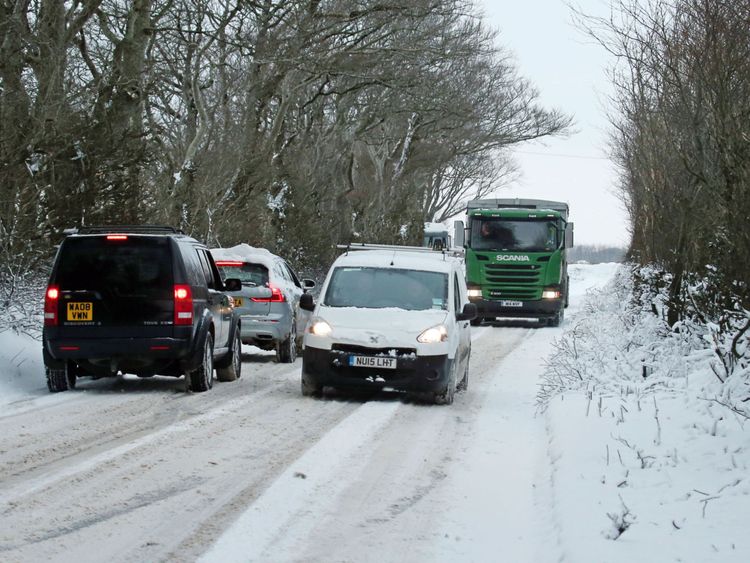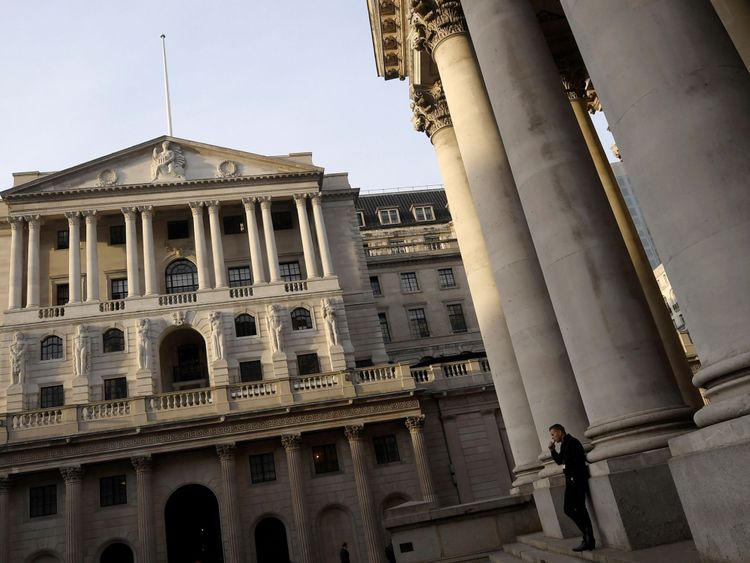No excuses.
Try as one might to blame the weather for the weakness of these GDP figures, to judge from what we have just heard from the Office for National Statistics, the economy was starting to sag well before the Beast from the East came in and disrupted UK economic activity.
Consumers – the engine of the UK economy for decades – have been spending less and less in recent quarters.
The services sector, which grew by around 2% a year in 2015 and 2016, is now growing by around 1% a year.
The construction sector – always volatile – was certainly affected by the Beast. But activity was already trending lower well before the temperatures dropped.
All of which is why overall growth is quite so weak. The first quarter’s growth of 0.1% was the weakest since late 2012, when Britain was still suffering the effects of the euro crisis.
Indeed, GDP per head, a better measure of how income growth across the country feels for the average person, actually fell by 0.1%.
Now, it is worth treating these figures with a certain degree of caution. They are early, provisional numbers which are usually revised. And other measures of the UK economy, for instance purchasing managers indices, are not quite as weak.
Nonetheless, it is difficult to escape the conclusion that Britain is facing what looks like a broad-based slowdown.
And while the snow in March might well have worsened the GDP print for the first quarter of the year, it is only a part of the explanation.
The economy is expected to bounce back in the following quarters, but even then the growth rate is expected to stay well below its long-term average – about 1.5% annual growth as compared to the 2.5% it used to enjoy before the crisis.
Why so weak? It is hard to escape the conclusion that people and businesses are simply spending less because of nervousness about Brexit.
Since no one knows precisely what kind of arrangement the UK will have with the EU in the coming years, no one knows precisely what to invest in, how much, and for how long. So everyone from businesses to consumers has tightened their belts.
Nowhere is this more obvious than when you look at the breakdown of today’s GDP numbers.
In these early estimates we don’t get a direct number on how much consumers spent (that’ll come next month). But we can focus on consumer-facing industries.
Only a couple of years ago these businesses that sell directly to households were enjoying growth of around 5% a year.
In the past couple of quarters that has dropped down below 1% a year.
In Q1, the growth rate was a mere 0.4%.
So consumers are tightening their belts. And while other economies around the world are enjoying an acceleration in growth, Britain is facing a slowdown.
One direct consequence: the Bank of England, which was previously expected to lift interest rates at its meeting next month, now seems likely to leave borrowing costs on hold. But probably only until August.
From – SkyNews



